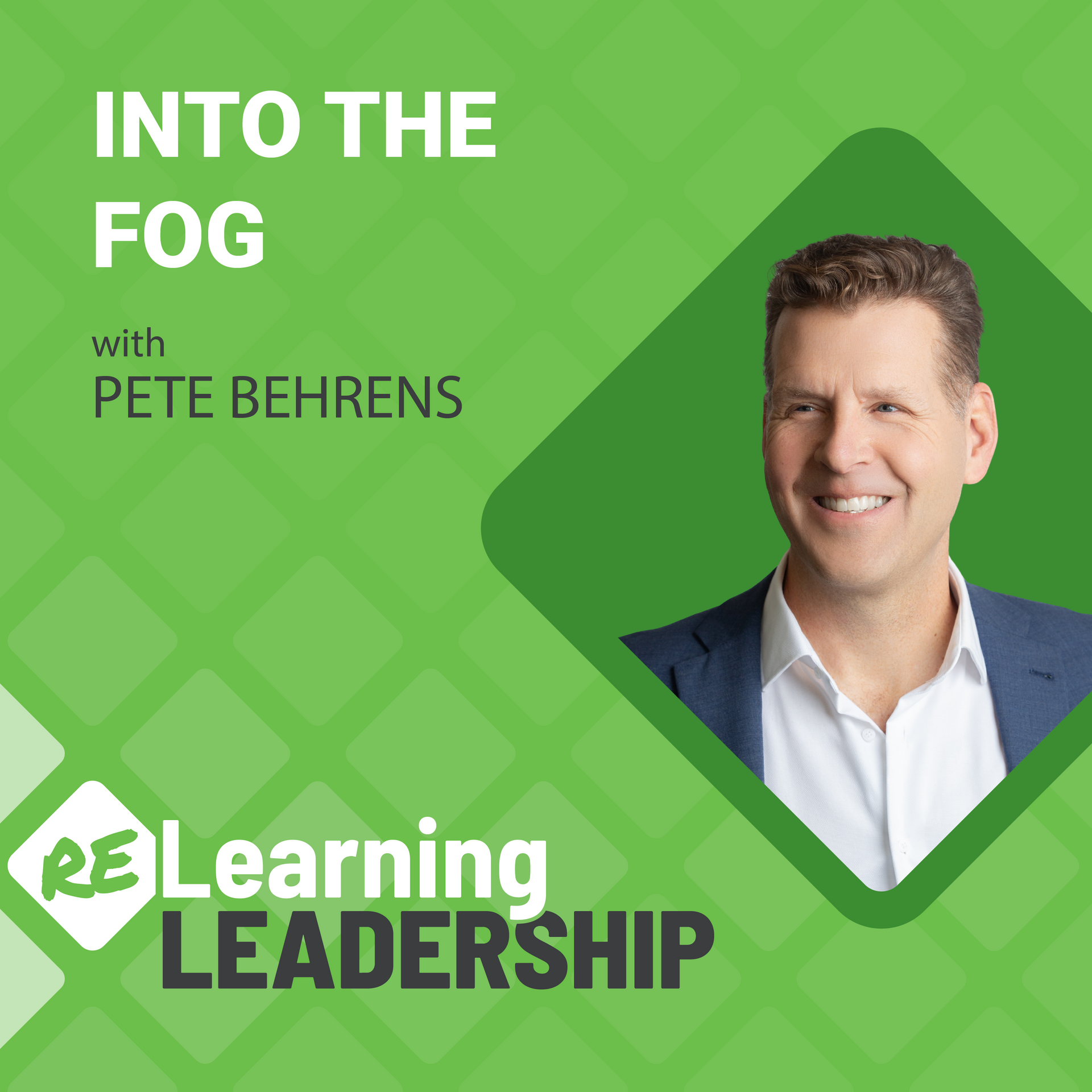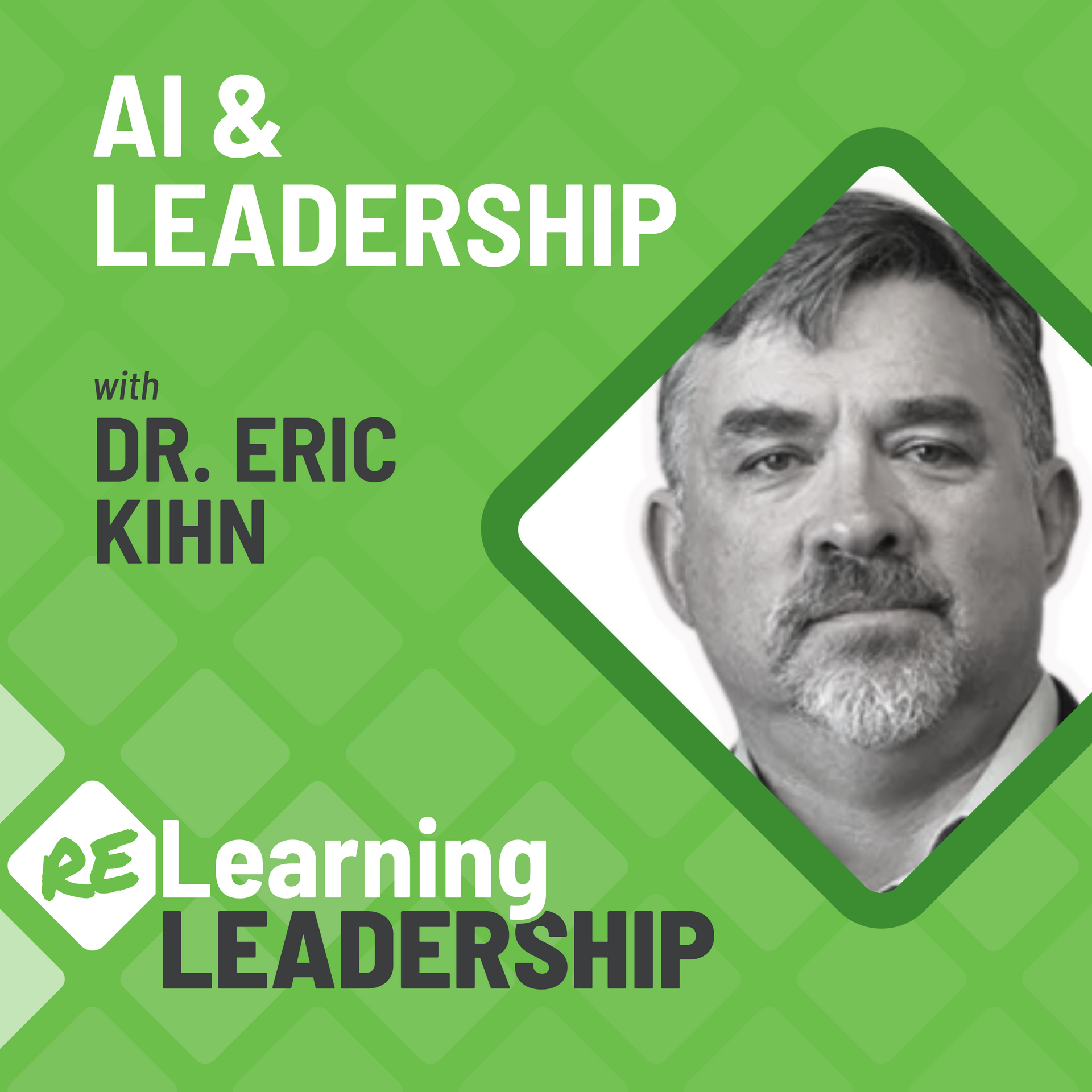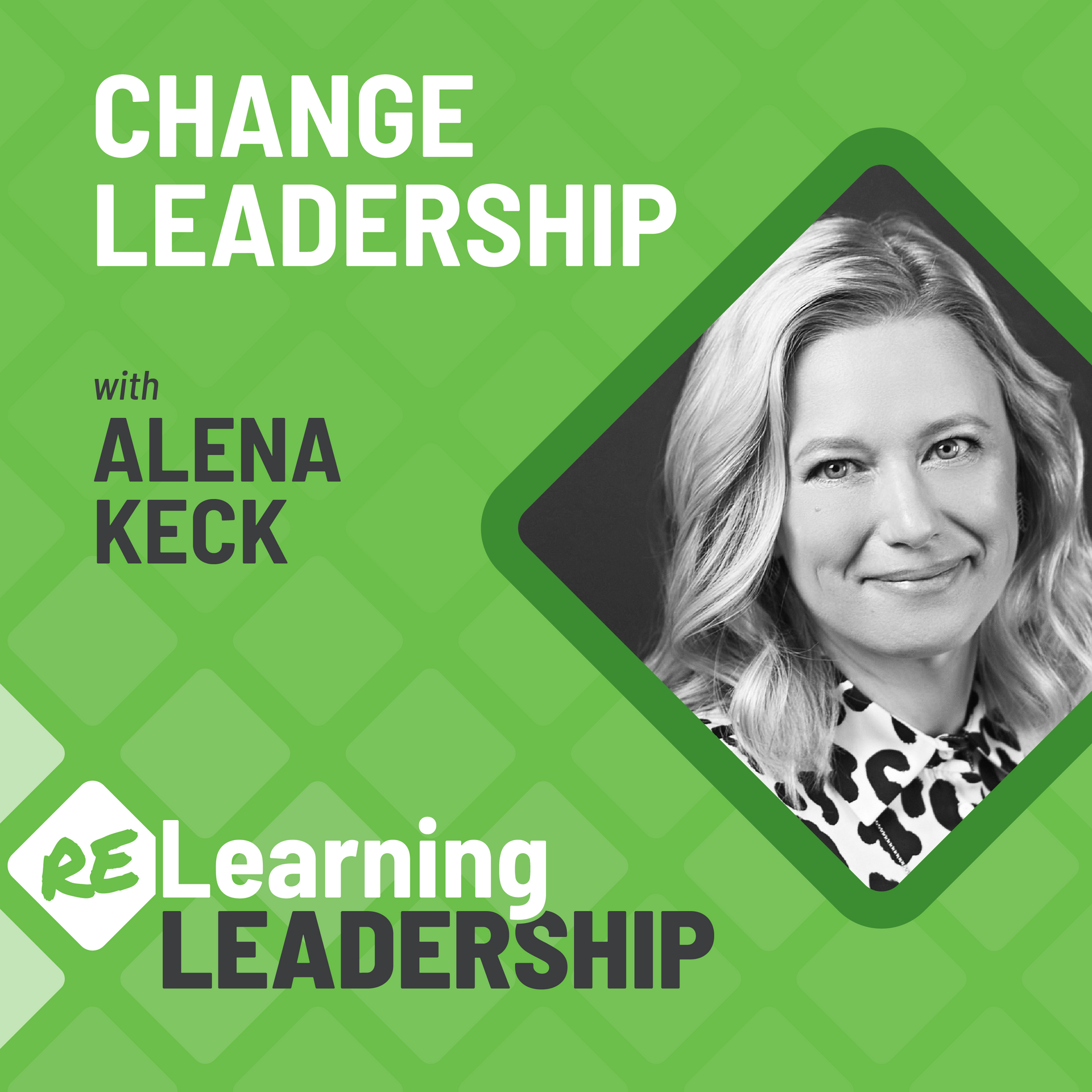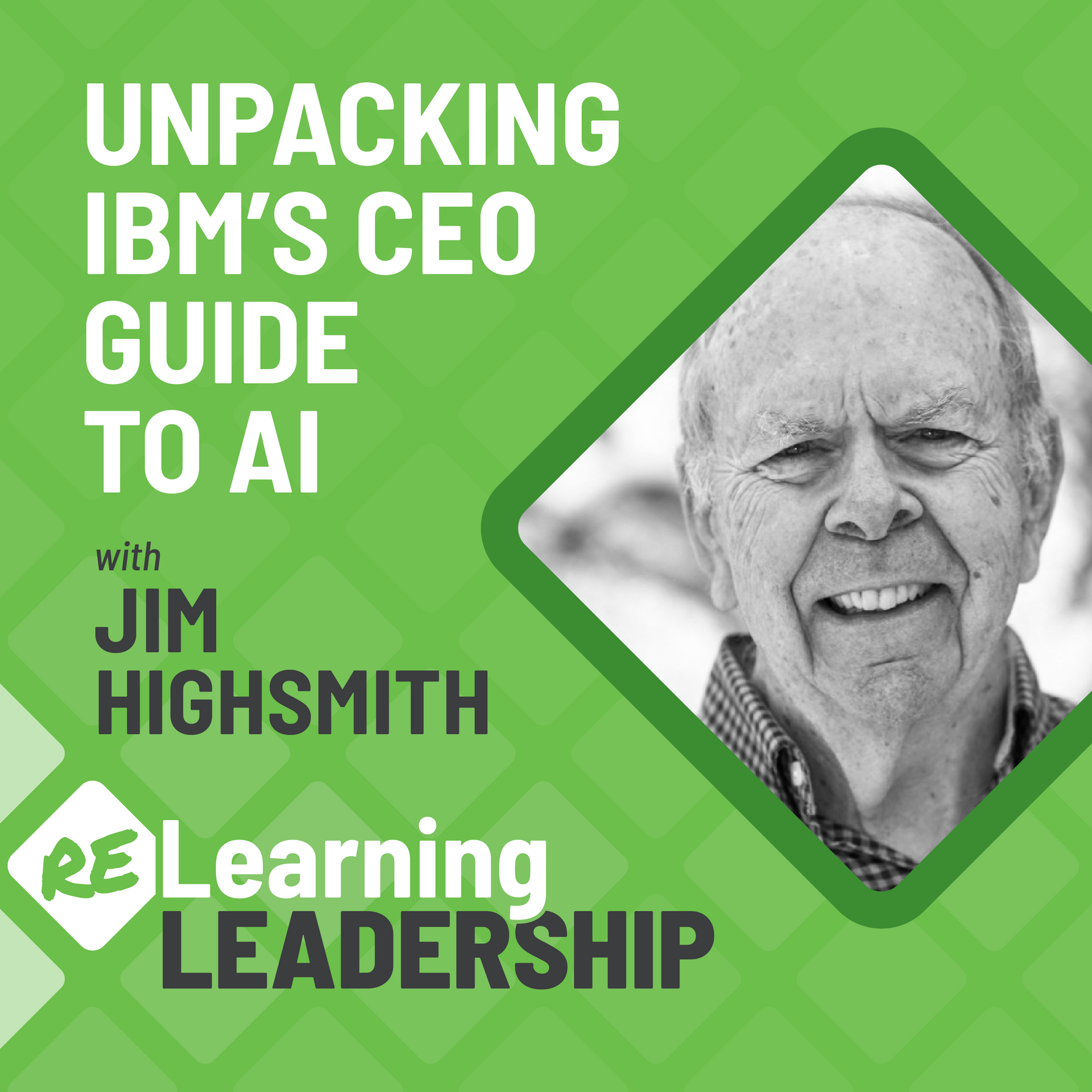1: Why Relearning Leadership?
Introducing the official podcast of Agile Leadership Journey
What does it mean to (re)learn leadership, and why did we create a podcast about it?
Welcome to the Relearning Leadership podcast, where we explore real leadership challenges, and dissect how to reprogram your leadership, your organization, and even your personal life.
Hosted by ALJ founder Pete Behrens, we explore leadership from all walks of life, bringing you the lessons our guests have learned (and relearned) along the way. In this episode, Karen and Pete explore why we created this podcast, who this podcast is for, and what we can look forward to throughout our first season of Relearning Leadership.
Karen Kemerling, Ph.D., Leadership Coach
Karen Kemerling, Agile Leadership Journey Guide and 30-year veteran of leadership, joins Pete to discuss the development and focus of this podcast. Learn more about Karen.
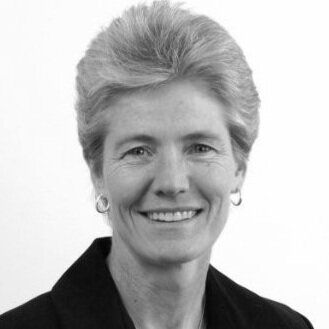
Episode Transcript
Pete Behrens:
So whether you stumbled upon us or have engaged in one of our programs, I hope you find as much value in these episodes as I do in exploring the topics with leaders just like you. Let's dive in. Welcome, Karen.
Karen Kemerling:
Thanks, Pete. It's good to be here.
Pete Behrens:
Well, I'm glad to have you here. I think it's going to be a fun time to talk through this a little bit with you, and maybe I'll just kick it off by throwing you to the wolves. Why are we doing this podcast, Karen?
Karen Kemerling:
I love that about you, Pete. Why are we doing this? I think leadership is an evolution. Leadership is forever a journey for all of us, and I always think of sports teams where they go through and they practice, and they get ready for the games, and they really put in the extra effort and time. And for those of us who take leadership and management as a profession, it's a lot like that. And I feel like this is a big part of the why, and why we're getting into this.
Pete Behrens:
When I think about corporate leadership, while our sports professionals get paid pretty well to have a lot of coaches at their side, a lot of our corporate leaders just don't have the resources, don't have that education and foundation and help along the way to have five people telling them what they're doing right and wrong.
Karen Kemerling:
Yeah. And the fun thing about what you just said there is, as a professional athlete, a coach is a good thing, right? It's good to have pitching coaches, and strength coaches, and nutrition coaches. A lot of times, as executives or leaders, we're like, "Ah, a coach? That must meet I'm weak. That must mean I need help or something." And it's like, "Let's turn that around." And I feel like this is what this is about. Relearning leadership brings that back to the table.
Pete Behrens:
You're right. I remember in my leadership past, how often I felt responsible to have the answer, felt responsible to be able to solve the problems, and bringing in an outsider maybe felt weak, like you said or felt like, "Well, this is my job. I should be able to do this." And I think being on the other side of that, when we see leaders and we do see that as a little bit more a sign of strength that you're able, you're vulnerable, you recognize your own limitations.
Karen Kemerling:
Mm-hmm (affirmative). Yeah.
Pete Behrens:
Given that, one of the things we want to think about here is relearning leadership is a construct around the fact that we're all on a journey. We're all trying to figure out how to get better. But I think it's specifically different in today's economy, the ecosystem we're working in.
The way I describe this a little bit is we're seeing globalization, we're seeing some economic turmoil, social turmoil, political turmoil, climate turmoil. There's so much going on in today's society, and I think the other thing behind the relearning leadership is, even the things we've been taught may be changing, or are likely changing. It's like the rug getting pulled out from under us. I'm wondering if you'd be willing to comment on that or how are you looking at that lens?
Karen Kemerling:
It's funny. I hate to date myself here, but past corporate executive for 35 years, I think about what I learned initially as a leader and the investment people made it be to become a manager and, honestly, let's be clear. It was time, it was money and it was resources. And that was the way we ran every project at the company, and these were big global companies.
And I reflect on that today and I think, how would that work today? We are global, people work from everywhere, their homes, you can't see people, things are changing all the time, like you mentioned. Competitors or collaborators? So it's not a win-lose. You've got a win-win together because you need each other to be successful.
Technology is a given. In the past, we thought it was our secret sauce. It's just the entry level to the playing field. So a lot of the things that I learned as a manager and a leader 30 years ago, I think about today, and I think, that doesn't cut it. That is not what's happening today. And to be able to say, "How can I continue to work on my craft and relearn in this day and age, the 21st century, really how to make an impact and how to incorporate new ideas and new things all the time in my leadership?"
Pete Behrens:
You say 30 years ago, but I would argue, I think most of the business schools today are teaching that same curriculum, are teaching traditional project management, are teaching traditional resource management, risk management. And we think about, just take something like risk and in the day you describe, or in what we're being taught, it's the financial risk, it's the project risk, it's the budgets, it's the schedule risk.
Are we building in essentially this with a quality way? When I look at most companies today that are building things, it's not about the output that they're building, it's did they build it in a way that somebody wants it? Are they meeting customer demand and need? And so, even some of those things that are just around risk management have changed, and I don't think you're dating yourself here. I think leaders coming out of school today are struggling with the same constructs.
Karen Kemerling:
I think you're right on. It wasn't that long ago I was running a company, and even though I pride myself on being a lifelong learner, and we talk about sports, and I want to keep learning, and I want coaches and all of that, I have to be honest, I focus on the bottom line.
What are the KPIs of the company? I love leadership, but unless it really helps me do better for the investors and the board of directors... So I still was practicing the stuff I learned 30 years ago today, and I know that I can do better. And I know that there's a real opportunity for me to be vulnerable and think about, how could I do this differently? How might I incorporate the power of the team and co-creation, and this whole concept of agility?
I have to be honest, I used to think, that's a technical thing. We find that in the bowels of IT, and software development is only doing agile, and I'm an executive and I don't have time for that. The truth is, if you don't make time for that, it's not clear to me that your company will be in business going forward, just given the climate and the environment that we're living in. So agility and iteration is super key.
Pete Behrens:
You're bringing up a couple of points here. One is, as leaders, as humans, we tend to fall into these habits and we tend to fall into our what's worked for us, and whether you're a new leader and you're coming from a technical field and you are the expert, that's how I lead. I know my stuff the best.
And you recognize quickly that doesn't work as you continue to grow in your leadership and get new roles. Just as companies are realizing today, the projects they ran 10 years ago, five years ago, even last year, they don't work the same in a COVID environment. They don't work the same in a socially-disrupted environment, in a globalized environment, where we're all working from home. And we might want to put COVID in a bucket of an anomaly, but I would argue COVID is a data point on a trend, and this concept of shift, and change, and disruption isn't going to go away.
Karen Kemerling:
I love what you're saying, and I know, for me, relearning leadership, every CEO that's out there puts that pressure on themselves of the old way, but having the courage and the vulnerability to look at yourself first and say, "Hmm, how can I set the tone? How can I relearn what I've learned in the past, and enable and empower my team to be part of the solution?" That's the future, that's the secret sauce. From inclusion to innovation is a whole new process for our CEOs and our leadership.
Pete Behrens:
Well, and that brings us to a good point. So we think about what we're going to be exploring in this. So first of all, why? It's disruptive the world is changing, the way we run businesses are changing. And leadership has to change, we've got to be rethinking the way we're doing our leadership.
But the second piece here is a little bit about the who in this. And you talk about CEOs, you talk about directors, yet, in a sense, when I think about leadership, I actually like to focus on the ship side. And I think about everybody influences, everybody shapes culture. Everybody has some form of creating alignment and influencing others. And so thinking about the audience, I want us to refocus of all of those people, not just those senior leaders. How are you looking at that audience for our podcast?
Karen Kemerling:
Right. Yeah, I do agree. I think it scales. I think that, as a first-level manager, I would love it because it gives me tips and tricks, and tidbits of things that I can use. But back to my point of the CEO and maybe my past, is that there's a lot of pressure CEOs put on themselves to know it all. And the cool thing about a podcast is that I can listen to it in my car and no one needs to know that I don't know it all, and I can show up at work and be like, "I've got some new ideas on how to be vulnerable and inclusive."
I'm kidding a little, but I do think that there is this scale from the manager to the CEO, and relearning leadership applies to the whole spectrum, and maybe not manager, per se, of people, you can also just be a leader from every seat. Every person, today we're creating collaborative and environments that aren't about, are you in charge? It's like, no, do you contribute? What do you bring? What's your craft? What's your secret sauce? What's your magic power? Because we need all of that. And everybody can benefit from leadership and relearning it.
Pete Behrens:
Karen, I really like what you're saying with this leadership from every seat perspective, because I think it ties in really well with what we're going to be focusing on in this podcast this season. And that is, in a sense, this is for leaders by leaders, and we really want to get in the trenches with these leaders, focus on things that are important like how do you lead change from the middle of an organization? Or how are you leading in a global context, working with remote teams? Or what are leaders looking for to promote the next leader? Those are really interesting topics to me, and I'm curious, what are you looking forward to?
Karen Kemerling:
I love those topics. For me, one of the ones that's near and dear to my heart, that I want to unpack is really this concept of trust and building trust in a remote environment where people are out of sight and out of mind. And it's definitely a relearning of leadership and understanding how to connect, how to help people feel valued and included, because I truly believe that's the secret sauce to innovation. So I think that's a core topic, and a sister topic to that is what I would call culture. And the leaders in the organization really are the group that makes the culture come to life. So culture mirrors the leadership. And that's a topic that I think is super impactful, and hopefully we'll dig deep into that one.
Pete Behrens:
Yeah. Well, Karen, I just want to say thank you for sharing today. Thanks for being part of this conversation, and I know we're going to be in future conversations in upcoming episodes, so just want to say thanks.
Karen Kemerling:
Thank you so much. I really enjoyed it.
Pete Behrens:
And I want to say thank you for listening. And I'd like this to be not just a listening episode, I'd like this to be a two-way street. And so, I encourage you to share your feedback, give us a review, subscribe, bring your challenges to us. And in fact one of the things we're going to be looking at here is getting other voices, bringing other voices to this platform, not just experts, but also the leader's voice. And so, we encourage you to share your ideas, your challenges, and what you're relearning about your own leadership. So thank you.
Check out our first podcast episode with Josh Foreman, a director of a fast growing scale-up organization trying to navigate a new boss, and my analysis of his situation with Rachel Westin-Raul, a leadership teams coach who specializes with these types of organizations.
Relearning Leadership is the official podcast of the Agile Leadership Journey. It's hosted by me, Pete Behrens, with analysis from our global guide community. It's produced by Gabe Curzon and David Reimer with Matter Communications. Art design by Nicole Bedard, music by Joy Zimmerman, with editing by Ryan Dugan. If you love listening to this podcast, please leave us a review, and to relearn more about your own leadership, visit us at agileleadershipjourney.com.
Explore:
Recent Episodes

